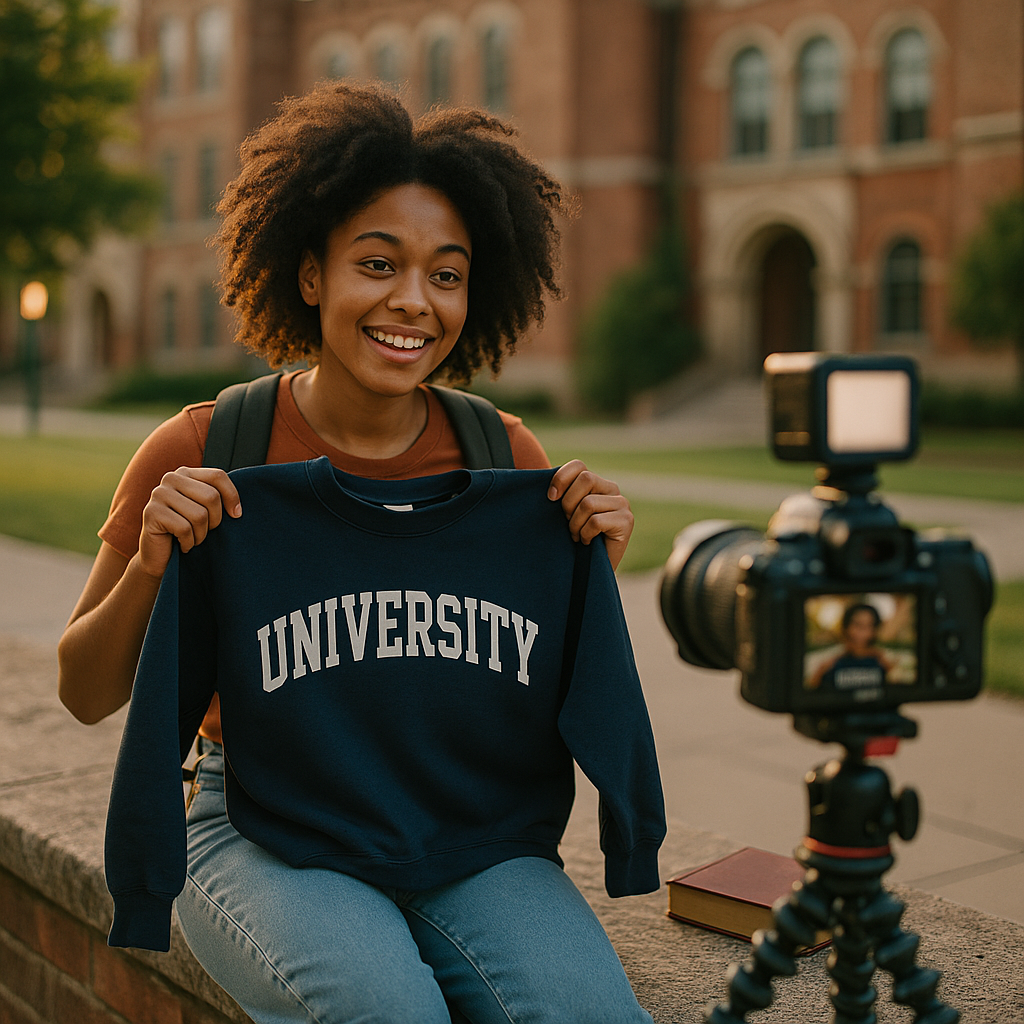Universities are increasingly exploring creative ways to attract prospective students, and student and alumni influencers have emerged as a powerful recruitment strategy. This case study delves into how one university elevated its recruitment campaigns by leveraging relatable voices and authentic experiences. Could this influencer-based approach be the future of university marketing?
Leveraging Student Influencer Marketing: Strategy & Approach
Student influencer marketing has rapidly gained popularity within higher education recruitment. Recognizing prospective students’ preference for peer-driven content, the university identified current students and recent graduates with a strong social presence. The primary objective was to share honest campus experiences and outcomes, cultivating credibility and trust among applicants actively considering their next educational step.
According to a 2025 Inside Higher Ed survey, 71% of students reported influencer testimonials played a key role in their application process. The university capitalized on this trend by launching targeted campaigns, featuring authentic content from micro- and nano-influencers across Instagram, TikTok, and LinkedIn. These platforms encouraged interactive engagement, allowing prospective students to ask questions and visualize themselves within the campus experience through stories, Q&As, and “day in the life” vlogs.
Building Authentic Connections with Alumni Social Proof
Alumni influencer engagement provided an additional layer of authenticity to the university’s recruitment strategy. By collaborating with graduates employed in diverse industries, the institution showcased real-world outcomes and success stories—a critical factor for many applicants. Highlighting varied career journeys, alumni shared insights via webinars, live streams, and testimonial videos.
The university also integrated alumni stories within its digital brochures and application materials. This direct alumni social proof reassured both applicants and their families of the long-term value of enrollment. According to LinkedIn Education Insights (2025), institutions leveraging alumni case studies in recruitment content saw a 28% increase in qualified inquiries.
Measuring Influencer Recruitment Campaign Success
Effective measurement was vital to refining the influencer recruitment strategy. The university implemented robust analytics across platforms, tracking:
- Engagement rates on influencer posts
- Content shares and saves
- Click-through rates to official admission pages
- Inquiries and open house sign-ups attributed to influencer efforts
- Application conversions from campaign links
Data from the pilot year revealed an engagement rate of 13%—significantly exceeding sector averages. Notably, applications originating through tracked influencer content accounted for 18% of the university’s total applicant pool, reflecting well-targeted and valued outreach. Insights from these metrics allowed for continuous improvement of future influencer collaborations, budgets, and messaging priorities.
Overcoming Challenges and Ensuring EEAT in Recruitment Content
While student and alumni influencer campaigns drive connection, the university addressed several challenges to maintain credibility and foster trust—core elements of Experience, Expertise, Authoritativeness, and Trustworthiness (EEAT). Rigorous selection criteria required influencers to possess deep campus experience and uphold university values. All sponsored content was transparently disclosed, and influencers received training on institutional guidelines, ensuring consistent, helpful, and factual information was delivered to prospects.
The marketing team also monitored community feedback, swiftly addressing misinformation or sensitive issues. This proactive approach not only maintained the campaign’s reputation but underlined the university’s commitment to ethical, truthful representation as verified by independent student satisfaction surveys administered quarterly in 2025.
Scaling Influencer Initiatives for Sustainable Enrollment Growth
Scaling a successful influencer-led recruitment model required ongoing recruitment and support of new student leaders as well as active alumni. The university formalized ambassador programs, offering stipends, professional development opportunities, and social media training. These efforts increased influencer retention and diversified campaign voices, ensuring content resonated with applicants from assorted backgrounds and academic interests.
To keep audiences engaged, the university scheduled seasonal content pushes—featuring influencer takeovers during orientation, finals, and graduation periods. Ongoing feedback loops between marketing and influencer teams ensured campaigns remained relevant, relatable, and measurable year-round.
Conclusion: Influencer Recruitment Is Redefining University Marketing
This case study demonstrates that student and alumni influencer recruitment empowers authentic storytelling and drives measurable growth. Implementing a transparent, well-monitored influencer program helps universities effectively connect with future students where they are—online and engaged. As digital platforms evolve, this strategy will remain a cornerstone of successful student recruitment initiatives.
FAQs: Student and Alumni Influencers for University Recruitment
-
What is a student influencer in university recruitment?
A student influencer is a current student who shares their authentic campus experiences on social media, helping prospective students understand daily life, academics, and opportunities at the university.
-
How do alumni influencers support university enrollment?
Alumni influencers demonstrate post-graduate success and career paths, offering real-world proof of the university’s impact. Their stories help assure applicants and families of long-term value and outcomes.
-
How do universities select the right influencers?
Universities prioritize individuals with genuine campus involvement, positive reputations, and strong engagement metrics. Authenticity, clear communication skills, and alignment with university values are essential.
-
Is influencer marketing in higher education effective?
Yes—recent studies in 2025 show that influencer marketing significantly increases engagement, application rates, and enrollment. Peer-driven, relatable content drives credibility and trust with Gen Z audiences.
-
What safeguards are in place to ensure trustworthy content?
Universities provide training, transparency guidelines, and content approval processes for influencers. Ongoing feedback and monitoring help maintain factual, ethical, and helpful content for applicants.
